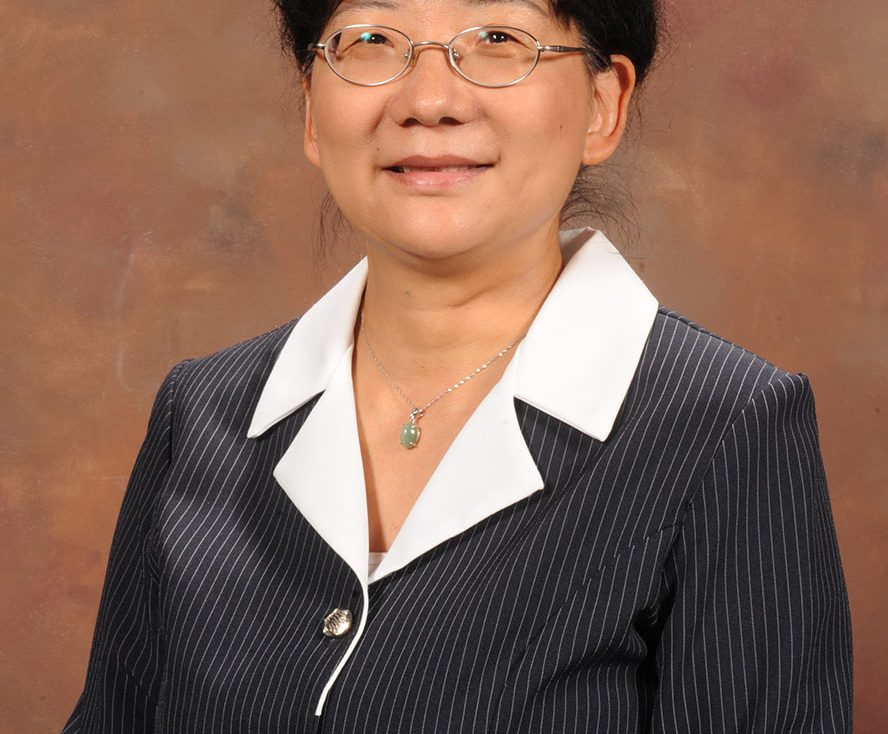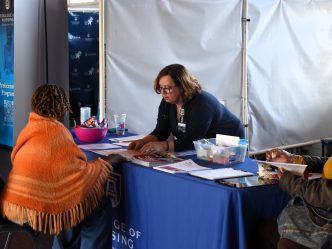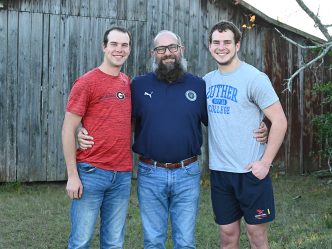Getting data on just about any subject is not that hard to do in this day and age. The difficult part is organizing that data and putting it to use. That’s where Dr. Jie Chen comes into play as professor and division chief of the Division of Biostatistics and Data Science in the Department of Population Health Sciences at the Medical College of Georgia.
Chen sees how analytics can play an important role in the medical and health fields.
“In order to get better precision medicine, or in another term called ‘personalized medicine,’ you have to first know overall the population characteristics, and make inferences from the population data and then you can zoom in to study individual data,” said Chen.
A major tool Chen has been able to tap into is the National Institutes of Health “All of Us” research program.
The program’s goal is to gather health data from at least one million people nationwide to create one of the most diverse health databases ever in the United States. Researchers can use this data to learn how biology, lifestyle and environment affect health, and possibly help find ways to better treat and prevent disease.
“I have found it’s really a gold mine for people who are interested in all kinds of studies related to disease and disease risk factors. You have the diversity of the population and how some of the subgroups in the population may be prone to some types of disease, and you can also link those to genetic information.”
The NIH was originally a closed program managed by several partner universities, but has since reached out to other researchers like Chen. The NIH liked how she was using their database to its full potential, and Chen’s study on health care access and utilization among adult cancer survivors became the first peer-reviewed publication by a researcher outside of the All of Us consortium using the dataset.
The NIH All of Us program coordinator invited Chen for an interview to share her experience using the data.
In the research, Chen and her collaborators learned more about the barriers to health care faced by cancer survivors. Data analyzed included demographic factors, other personal characteristics, personal medical history of cancer, health care utilization and access to care.
According to the study, frequently cited reasons for delayed care were out-of-pocket expense for certain procedures, unaffordable deductibles, unaffordable copays, inability to get time off from work and anxiety about seeing a health care provider. While Chen said the results weren’t necessarily surprising, they did put data behind what she already suspected.
Chen and other Augusta University collaborators are now working on is an autism study. Since there isn’t much outside data available, using All of Us is giving her a reasonably good sample size to mine for answers to questions her team may have about autism and the socioeconomics behind the disease.
Once a research project is agreed upon, Chen will go into the All of Us research workbench and start searching for data. Then, she will form a cohort under the platform and eventually write a computer code on the Jupyter Notebook — a high-performance computing service maintained by the All of Us platform — that will analyze the data to get results, which she and her collaborators will interpret.
Biostatistics is a growing field and Chen is finding unique students to join the program.
“We find a student who has very good quantitative skills, who really wants to work on something related to computer coding and statistic principals,” added Chen.
In fall 2021, the Medical College of Georgia added a Master of Science in Data Science to its curriculum. The degree is designed to provide students a rigorous training in data science methods to empower them to address complex problems facing society.
“Our goal is to really train our students to have the skills to analyze the data and to make sense of the data, whether they work in the cyber field or they work in the biomedical field. We have our first cohort of students here so I could guide a student if they are interested in biomedical data through All of Us. I have this firsthand experience so I can really train them when they choose their capstone project,” added Chen.
Chen’s work is getting noticed and others are approaching her to work on projects.
“A researcher at the Georgia Cancer Center is getting to know this particular data and he said, ‘Can we form a team and go look at the All of Us database with some interesting research questions?’” she said. “I just hope our AU biomedical researchers really realize how useful this database is. One can use the data available on All of Us to form a pilot study to generate more health-related research questions or directly use the data to answer research questions that were not answered due to lack of data in the past.”
 Augusta University
Augusta University




